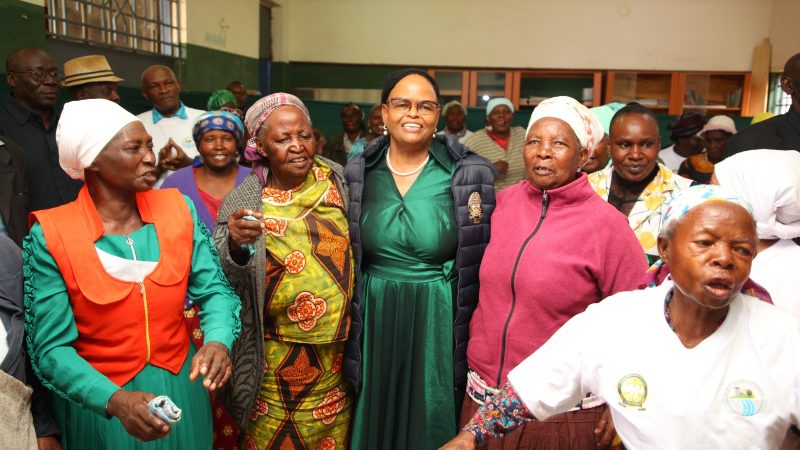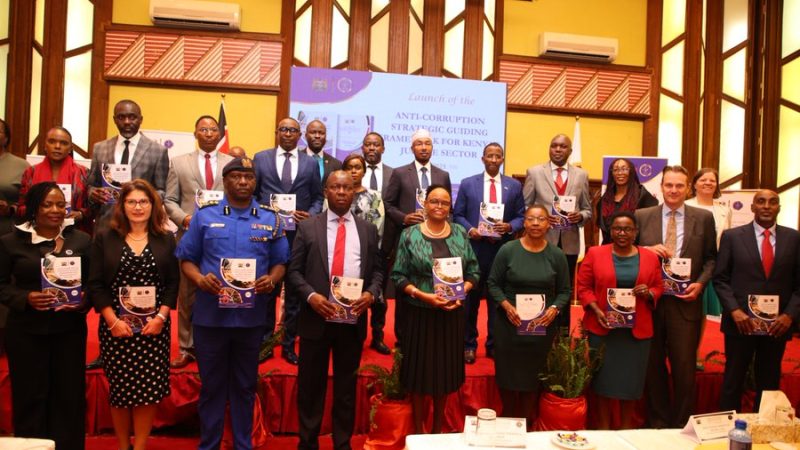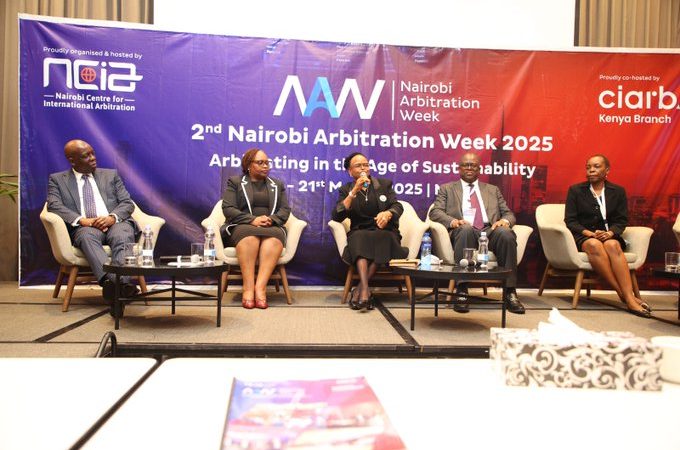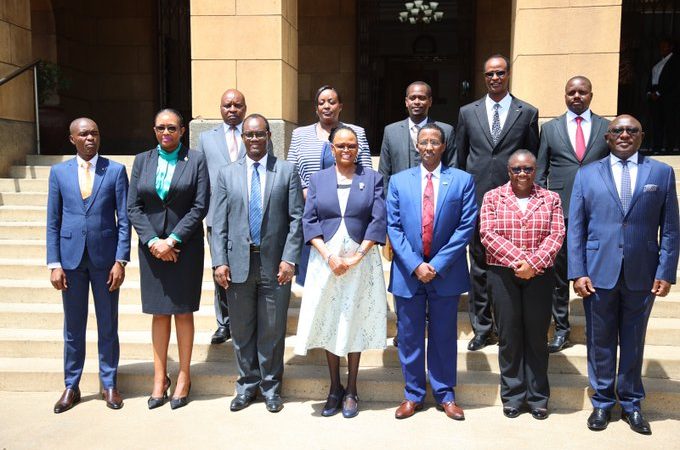Tribunals’ Shared Service Infrastructure at Kenya Re Towers, the Tribunals’ Website, and the Tribunals’ Registry Manual
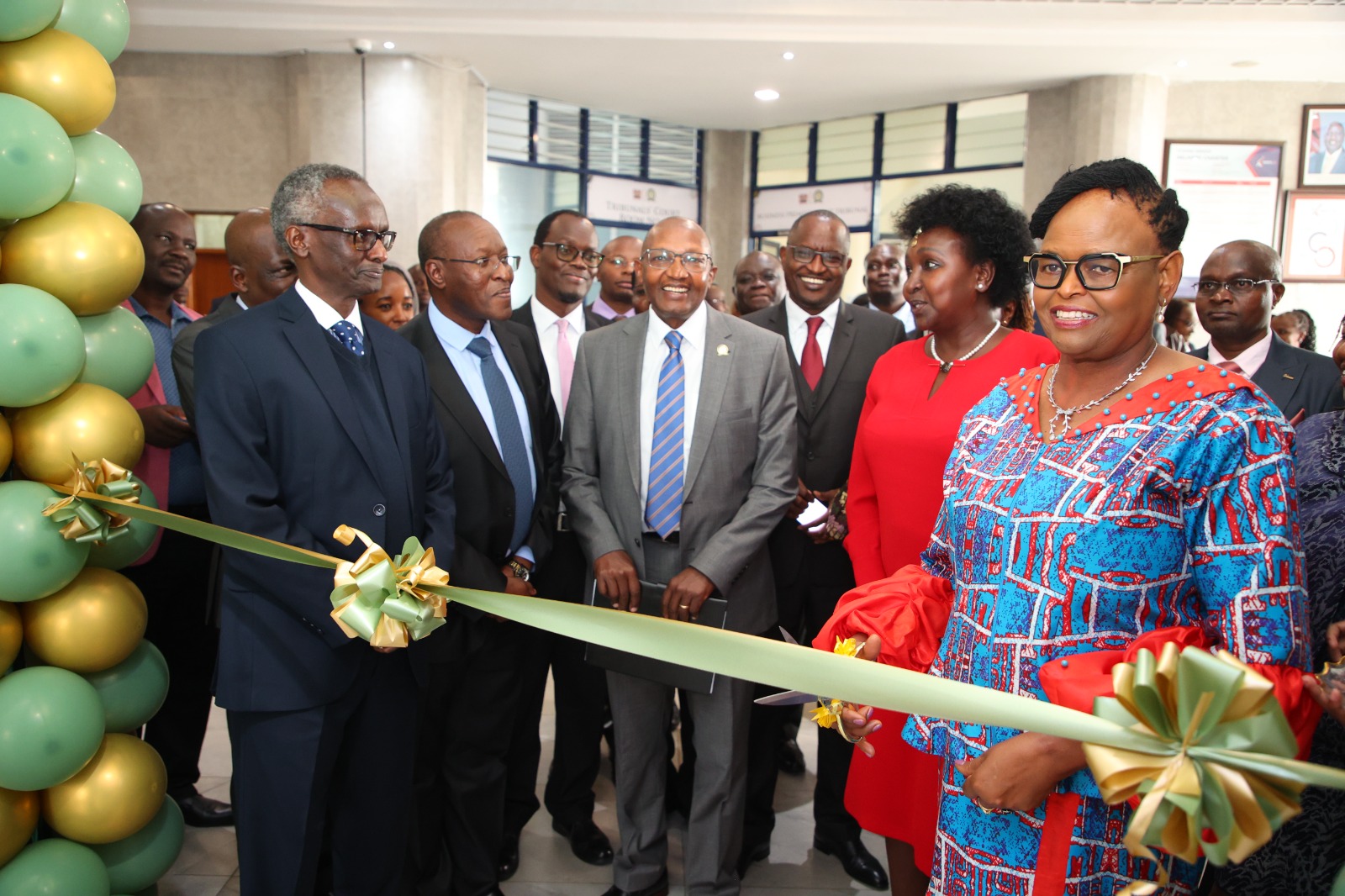
The Hon. Chief Justice launched three pivotal initiatives: the Tribunals’ Shared Service Infrastructure at Kenya Re Towers, the Tribunals’ Website, and the Tribunals’ Registry Manual, all aimed at enhancing service delivery within our justice system.
The Shared Service Infrastructure centralizes all Tribunals at Kenya Re Towers, offering a one-stop location with shared administrative services. This move addresses the previous challenge of Tribunals being scattered across the city, making it difficult for citizens to find the services they needed. Now, all Tribunals are easily accessible in one place.
The Tribunals’ Website is designed to make information more accessible to Kenyans. Through the website, citizens can learn how to lodge cases, view cause lists, find out when Tribunals will be sitting outside Nairobi, and access other relevant information. This initiative is part of our broader effort to make legal information more available to the public, thereby deepening access to justice.
The Tribunals’ Registry Manual standardizes registry operations across all Tribunals. Previously, each Tribunal operated independently, leading to confusion for litigants. The new harmonized manual streamlines operations, providing clarity and consistency in registry processes.
These initiatives mark a significant milestone in transitioning Tribunals from the Executive to the Judiciary, with 26 Tribunals successfully integrated into the Judiciary. This transition aligns these Tribunals with the ethos of the Judiciary. All Tribunals are now expected to uphold high-performance standards, leverage technology, and adopt innovative practices to ensure efficient and fair service delivery.
The impact of this transition is already evident in the Tribunals’ impressive performance, as demonstrated by a Case Clearance Rate of 111% in the last financial year, resolving 15,173 cases compared to 13,712 filed. The Rent Restriction Tribunal, the Business Premises Rent Tribunal, the Tax Appeal Tribunal, and the Cooperative Tribunal have led with the highest clearance rates.
This excellence is further reflected in the Judiciary Performance Management and Measurement Understanding (PMMU) results, which annually evaluates courts and Tribunals. The Sports Disputes Tribunal, Tax Appeals Tribunal, and Business Premises Rent Tribunal were recognized among the best performers in the last evaluation cycle Additionally, the Political Parties Dispute Tribunal played a crucial role during the 2022 electoral cycle, promptly resolving pre-election disputes and ensuring the smooth conduct of the general elections.
However, the transition process remains incomplete due to the absence of a legislative framework to streamline Tribunal operations. I appreciate the government’s support in this regard, particularly the Cabinet’s approval of the Tribunals Bill last year, and urge the National Assembly to expedite the legislative process to finalize this transition.
